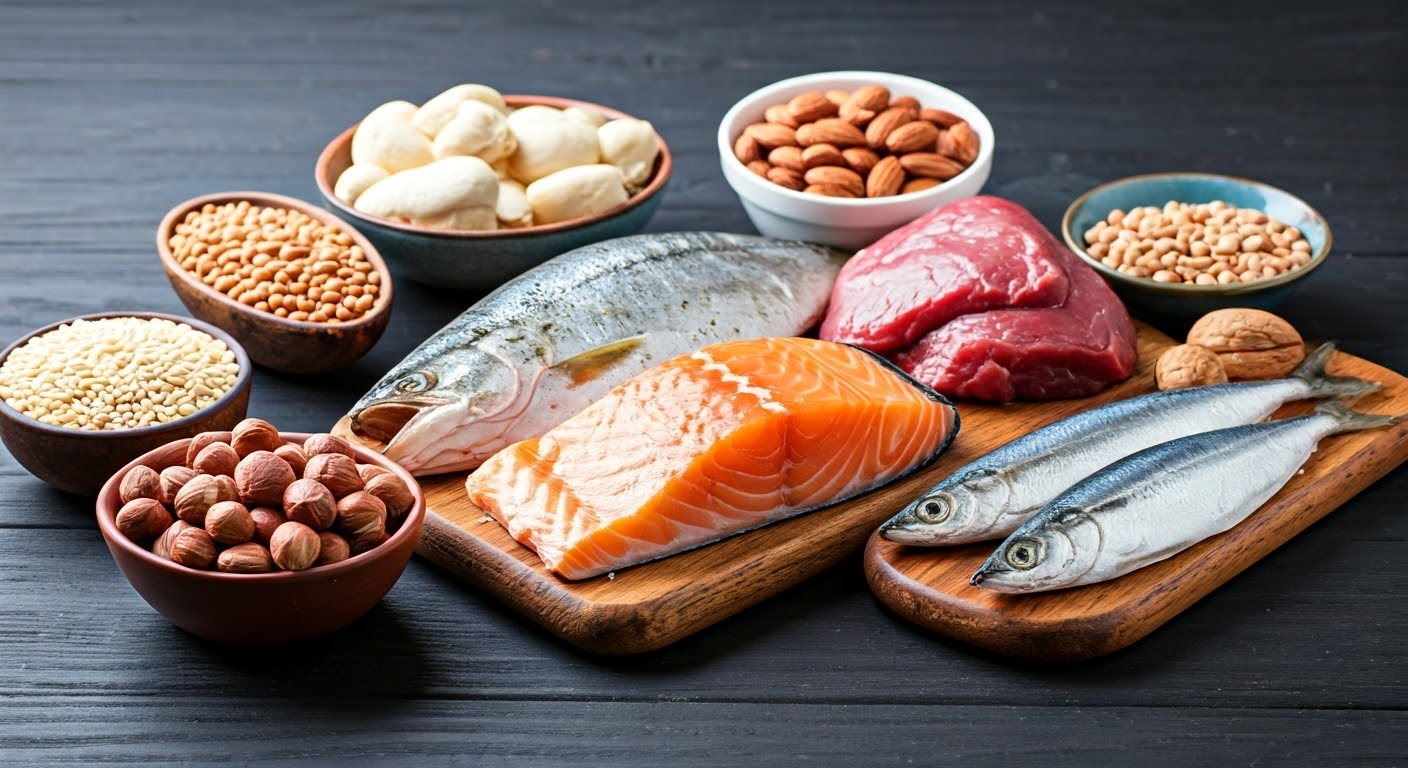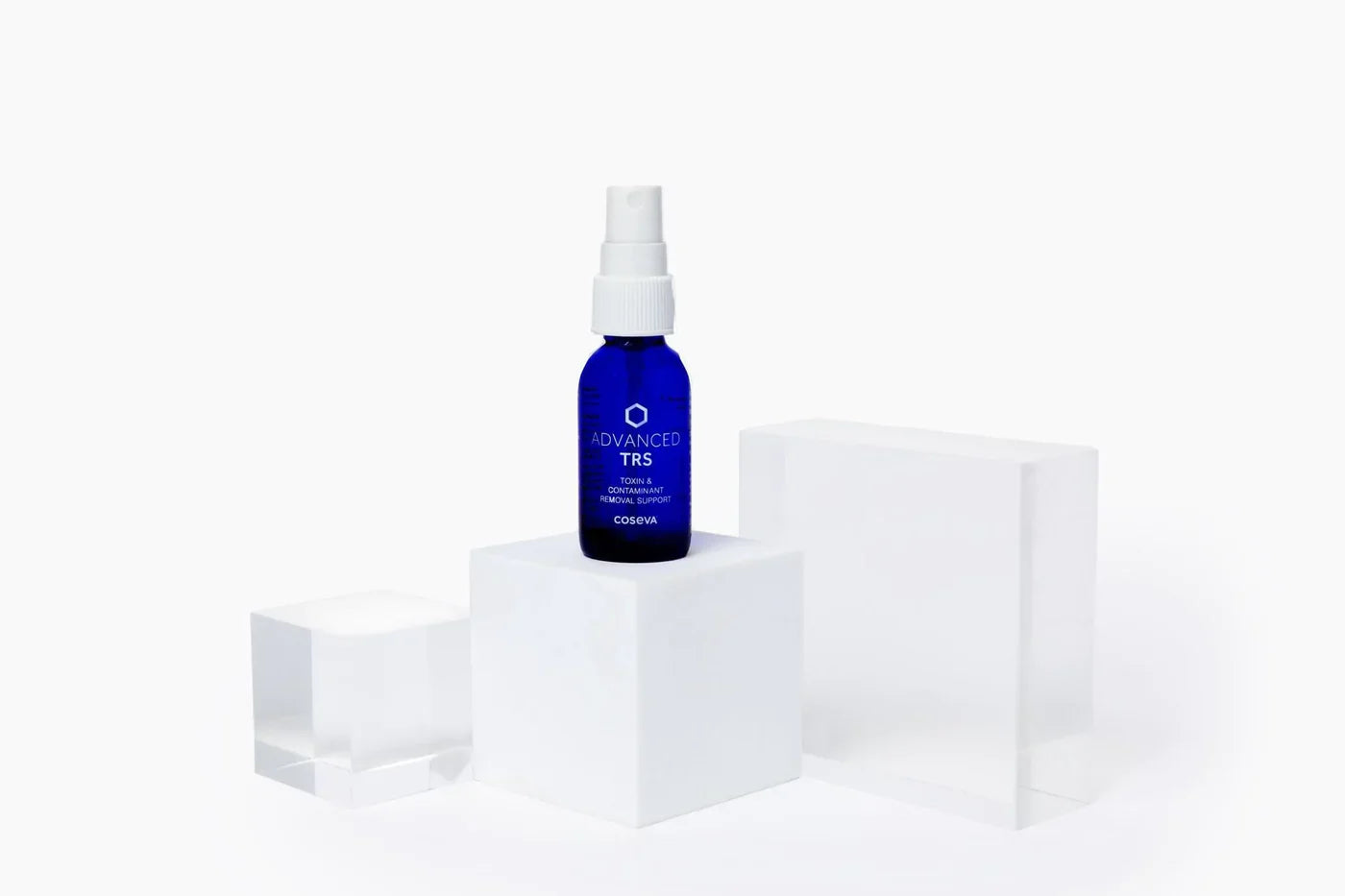Key Highlights
- Selenium is an essential trace mineral that plays a crucial role in various bodily functions.
- Good sources of selenium include Brazil nuts, seafood, meat, and poultry.
- Selenium supports a healthy immune system, promotes thyroid function, and protects against cell damage.
- It’s important to consume enough selenium, but excessive intake can be harmful.
- This blog explores the benefits of selenium and provides a list of selenium-rich foods to include in your diet!
Introduction
Selenium is a trace element that is often ignored, but it is very important for our health. We only need a little of it, but we shouldn't underestimate its role. Selenium helps keep our immune system strong and protects our cells from damage. It really is a health hero!
Understanding Selenium and Its Importance
Selenium is important for our health. It is a trace element, which means our bodies need only a little bit of it. But don't be misled. This small mineral serves as a strong antioxidant.
Antioxidants are substances that protect our cells from harm. They do this by fighting against dangerous molecules called free radicals. Essentially, selenium helps keep our cells healthy and working well. This supports our overall health and helps prevent disease.
What is Selenium?
We know selenium is a trace element, but what does that mean? In simple words, our bodies need it in small amounts to work well. Don’t worry, getting enough selenium in our diet is easier than you think!
The National Institutes of Health (NIH) set the Dietary Reference Intakes (DRIs) to suggest how much nutrients we should have, particularly referring to nutrient intakes of healthy people. These recommendations change depending on age and life stage. For adults, the daily recommendation for selenium is 55 mcg (micrograms).
This trace element is naturally found in many foods, including sources rich in vitamin C, and our bodies take it in when we eat. It is an important part of several enzymes and proteins that help keep us healthy.
The Role of Selenium in Human Health
Selenium plays an important role in many processes in our bodies. One key role is supporting a healthy immune system. You can think of selenium like a strong warrior. It helps your body fight infections and stay strong.
Selenium does even more! It is very important for the thyroid gland. This gland controls metabolism and hormone production. By keeping selenium levels just right, you help your thyroid, as highlighted in a systematic review on thyroid function.
Also, the antioxidant qualities of selenium are really great. It helps to fight off harmful free radicals. This protects your cells from damage and lowers the chances of long-term health issues.
Recommended Daily Intake of Selenium
Getting the right amount of selenium is all about balance. If you get too little, it can cause health problems. But if you have too much, it can also be harmful. So, how much selenium do you need each day?
The amount of selenium you should take each day can change based on your age, whether you are pregnant, or nursing a baby. Generally, adults should try to have about 55 mcg of selenium daily.
How Much Selenium Do You Need?
To make things clearer, let’s break down how much selenium we need each day based on age. For infants up to 6 months old, the needed amount is 15 mcg of selenium. When babies get older, their need grows to 20 mcg when they are between 7 and 12 months old.
Children and teens aged 1 to 18 years of age need between 20 and 40 mcg of selenium each day. In the United States, adults should aim for 55 mcg daily. Pregnant and breastfeeding women need a bit more, with recommendations from 60 to 70 mcg.
These amounts follow the Recommended Dietary Allowance (RDA) or Adequate Intake (AI) set by health groups, which take into account the average daily level of intake necessary for nutrient requirements. The Daily Value (DV) found on food labels usually uses 70 mcg of selenium as a reference.
Factors Affecting Selenium Requirements
We have general guidelines for how much selenium we need, but everyone's needs can be different. One big factor is age. As we grow, the amount of selenium we should take each day changes.
Dietary restrictions are another important factor. People who follow a vegan or vegetarian diet need to be careful about how much selenium they get. This is because plant-based foods usually have lower selenium levels than animal products.
Also, where you live can affect your selenium needs. The amount of selenium content of the soil is different in various places. This affects the level of selenium in crops, which impacts the food we eat.
Top Selenium-Rich Foods to Include in Your Diet
Now that you understand why it's important to get enough selenium, you may ask what the best food sources are. Luckily, adding this essential mineral to your diet is simpler than you might imagine!
You can find selenium in tasty seafood, protein-rich meats, crunchy nuts, and healthy whole grains. There are many types of food that can help you meet your daily selenium needs.
Seafood and Fish
Seafood fans, great news! Many kinds of fish are full of selenium. Yellowfin tuna is special because it has very high selenium levels.
If you don’t like tuna, don’t worry! You can still enjoy other tasty seafood like sardines, halibut, and shrimp. Adding these healthy foods to your meals is a tasty way to get more selenium.
-
Here are some seafood that have a lot of selenium:
- Yellowfin tuna
- Sardines
- Halibut
- Shrimp
Nuts and Seeds, Especially Brazil Nuts
If you enjoy snacking, nuts and seeds are great options. Among them, Brazil nuts are the best for selenium content. Just one or two Brazil nuts a day can meet your selenium needs.
But you should eat Brazil nuts in moderation. Eating too many can lead to selenium toxicity.
- Think about adding these selenium-rich nuts and seeds to your diet:
- Brazil nuts
- Sunflower seeds
Meats and Poultry
Meat and poultry are great sources of selenium. This is especially true for organ meats, like beef liver. Keep in mind that the amount of selenium can change based on the animal's diet and where they come from.
Lean cuts of beef, pork, and chicken are also good for getting this important mineral. When you plan your meals, don’t forget to add these protein-rich options!
- Boost your selenium intake with these meat and poultry choices:
- Beef liver
- Beef (lean cuts)
- Pork (lean cuts)
- Chicken
Dairy Products
Dairy products may not have as much selenium as seafood, meat, or Brazil nuts. However, it can still help you get the selenium you need each day. Milk, cheese, and yogurt are good sources of selenium, especially when they come from animals that eat grass high in selenium.
To have a well-rounded diet, you should include different foods with selenium. Dairy products can play a useful role in this.
-
Choose these dairy options that contain selenium:
- Milk
- Cheese
- Yogurt
Whole Grains
Whole grains are a great part of a healthy diet. They have many benefits, and the selenium they contain is one of them. The amount of selenium in grains can change based on the soil they grow in. Foods like brown rice can help you get more selenium each day.
Adding whole grains such as brown rice, whole wheat bread, and oatmeal to your meals can improve your selenium intake and make your diet better.
-
Enjoy these selenium-containing whole grains:
- Brown rice
- Whole wheat bread
- Oatmeal
The Health Benefits of Selenium
The benefits of selenium are many, making it important for our health. It helps our immune system, protects against cell damage, and supports thyroid function. These are just some of the great things selenium can do.
Let’s explore how selenium supports different parts of our well-being.
Boosts Immune System
A strong immune system is our main protection against infections and diseases. Selenium is very important for keeping it strong. This powerful mineral helps activate different types of immune cells. This makes them ready to fight threats effectively.
Selenium also has antioxidant properties. It helps neutralize harmful free radicals that can hurt immune cells. This keeps our defenses in good condition.
Research shows that having low selenium can weaken the immune response and make us more likely to get infections. It is important to keep selenium levels high to support a healthy immune system.
Promotes Heart Health
Research suggests that selenium may help keep the heart healthy, but more studies are needed to confirm this. Some studies show that having the right selenium levels might reduce the risk of cardiovascular disease.
Selenium might support heart health by lowering oxidative stress and inflammation. Both of these factors play a role in heart disease. In addition, selenium may improve blood flow and lower the chance of forming blood clots.
While we are still looking into how this works, the potential benefits of selenium for cardiovascular health seem promising. More research is needed to learn more about it.
Supports Thyroid Function
The thyroid gland produces hormones that control how our bodies use energy. It needs a mineral called selenium to work well. Selenium helps change thyroid hormone into the form our bodies can use.
Selenium is also good because it reduces inflammation. This helps protect the thyroid gland from harm and lowers the chance of thyroid problems.
Research suggests that taking selenium might help people with chronic autoimmune thyroiditis, which is a condition that affects the thyroid gland.
Antioxidant Properties and Cancer Prevention
Selenium has strong antioxidant properties. This has led many to believe that it might help in protecting against cancer. Research, including ongoing clinical trials, is still ongoing. We need more studies to confirm what we know now. Some evidence shows that having enough selenium levels might lower the risk of certain types of cancer.
Selenium helps neutralize harmful free radicals. This may protect our cells from harm and support its cancer-fighting potential. Selenium also plays a role in DNA repair. It helps control how cells grow and die.
We need more research to fully understand how selenium can help prevent cancer. Still, including selenium-rich foods in your diet may offer some benefits. If you think about taking selenium supplements for this reason, it’s important to talk to a healthcare professional first.
Selenium Deficiency: Identifying and Addressing It
Selenium deficiency is not common in developed countries, but it is important to know the signs and symptoms. Finding and treating it early is key to avoiding serious problems.
If you think you may have a selenium deficiency, talk to a healthcare professional. They can help you address your concerns and suggest the right tests and treatments.
Signs and Symptoms of Selenium Deficiency
Selenium deficiency can show up in a few different ways. This can make it hard to identify without proper testing. Yet, there are some common signs and symptoms that might mean you need more selenium in your diet.
One of the main signs of selenium deficiency is hair loss. If you notice that your hair is shedding or getting thin for no clear reason, it may be a good idea to check your selenium levels. Other signs include feeling tired, having weak muscles, or experiencing drop in mental sharpness.
In serious cases, not getting enough selenium can cause a rare heart condition called Keshan disease. It is important to deal with selenium deficiency quickly to avoid long-term health issues.
Populations at Risk of Selenium Deficiency
Selenium deficiency is not very common in North America, but some groups of people may be more at risk. People with digestive issues like Crohn's disease or ulcerative colitis may struggle to absorb selenium well. This may lead to a deficiency.
Also, those who are on kidney dialysis might be at risk for selenium deficiency too because dialysis can remove selenium from the body. Where you live can matter, too. For example, people in places with soil low in selenium may eat less of this important mineral.
The World Health Organization (WHO) believes about one billion people around the world might not get enough selenium, putting them at risk of deficiency. Many health groups are working to fix this problem. They aim to help people get enough selenium by suggesting better diets and providing supplements in areas where people are at risk.
Potential Risks of Excessive Selenium Intake
Just like having too little selenium can harm our health, having too much can be a problem too. It is important to find the right balance. This way, you can enjoy the benefits of selenium without causing any harm.
Although being toxic from selenium is uncommon, you should still know about the risks of taking too much, especially from supplements. Always talk to a healthcare professional before starting any new supplements. They can help you find the right dose and make sure it is safe for you.
Understanding Selenium Toxicity
Selenium toxicity, or selenosis, happens when selenium levels in the body become too high from different forms of selenium. This condition is rare but can happen if a person takes too many selenium supplements or is exposed to high selenium levels in the environment for a long time.
The National Academies of Sciences has set a safe limit for daily selenium intake. This limit is called the tolerable upper intake level (UL), which is the maximum daily intake unlikely to cause harmful effects on health. For adults, this UL is 400 mcg per day.
It is safe to consume selenium when you stay within the recommended daily range. But if you go over this UL for a long time, it can harm your health. So, it is important to watch your selenium intake, especially from supplements.
Managing and Preventing Overconsumption
Managing how much selenium you consume begins with being aware of it. Understand the daily amount you should have and the highest safe level (UL). Choose your food sources smartly. Eat Brazil nuts in moderation because they have a lot of selenium.
When picking selenium supplements, check the dosage carefully. Talk to your health care provider to make sure it suits your needs. Your health care provider can look at your overall health, think about any medications you are using, and guide you on how much selenium you should take.
Remember, having more isn’t always better. Follow the recommended guidelines and safely enjoy the benefits of selenium!
Conclusion
In conclusion, adding foods that are high in selenium to your diet can be very good for your health. These foods can help boost your immune system, support heart health, and improve your overall well-being. It is important to pay attention to the daily amount of selenium you should take and the risks of eating too much. By including seafood, nuts, meats, and dairy products in your meals, you can meet your selenium levels. If you are worried about your selenium levels or want to know how these foods can improve your health, talk to a nutritionist for help. Start enjoying the benefits of selenium today for a healthier tomorrow!
Frequently Asked Questions
What are the best food sources of selenium?
Good sources of selenium are Brazil nuts (just one or two each day!), seafood, organ meats like beef liver, and other types of meat. Additionally, nuts and seeds are a good source of selenium, especially sunflower seeds.
How can I tell if I'm getting enough selenium?
To know your selenium levels, you need a blood test. Your health care provider can order this test for you. After that, you can check your food intake against the dietary reference intakes (DRIs) and daily value (DV) listed on food labels. This will help you understand how much selenium you are consuming.
Can selenium help with weight loss?
Selenium can help with thyroid function. The thyroid is important for metabolism. However, there is no clear proof that taking selenium supplements leads to weight loss.
Are there any interactions between selenium and medications?
Selenium can affect some medicines. Always tell your health care provider about any supplements you are using. This will help prevent any possible interactions.



